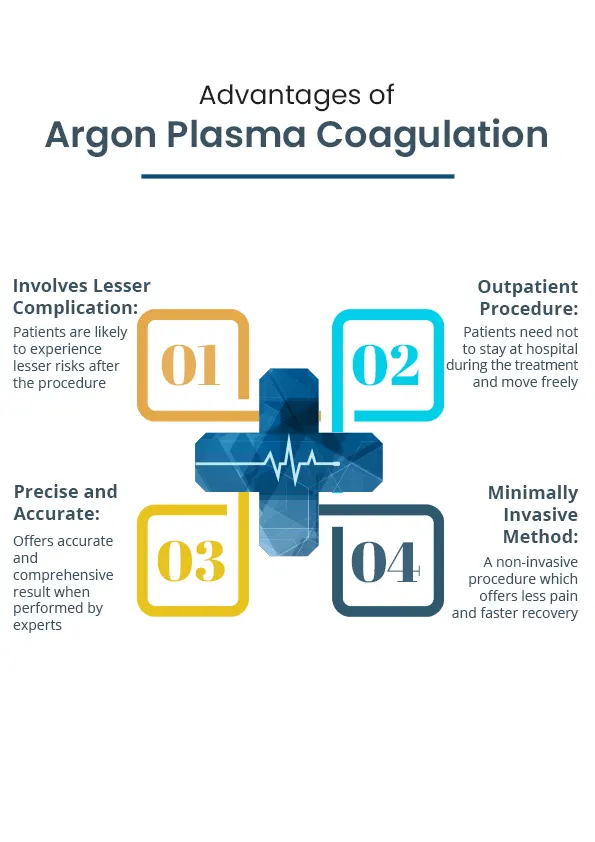Endoscopic Intervention
What Is Argon Plasma Coagulation?
Argon Plasma Coagulation is a treatment procedure performed for bleeding or lesions in the GI tract and offers a diversity of therapeutic options to patients suffering from other gastrointestinal conditions. This non-invasive treatment method, performed by a seasoned gastroenterologist helps in achieving rapid hemostasis and lowers the chances of other complications.
Why is Argon Plasma Coagulation (APC) Performed?
- Preventing Hemostasis: Helps in preventing any bleeding particularly from the GI tract due to the presence of ulcers, vascular malformations, or angidysplasia.
- Preventing Recurring Bleeding: The efficacy of the procedure ensures the prevention of recurring bleeding from existing lesions among high-risk patients having diabetes or cancers.
- Treatment of Lesions: Highly constructive in the treatment of lesions or other abnormalities in the GI tract like tumors, polyps, Barette’s esophagus, and radiation proctitis.
- Managing Bleeding in GI Tract: Helps in the treatment of gastrointestinal bleeding, including acute hemorrhage or chronic bleeding associated with conditions like diverticulosis or inflammatory bowel disease.
- Palliative Care: Offers palliative care to patients having cancers or severe ulcers in reducing the intensity of symptoms and reducing any discomfort.
Advantages of Argon Plasma Coagulation (APC)
- Accuracy & Precision:Offers accuracy and precision in targeted treatment of lesions or bleeding sources without damaging surrounding healthy tissue.
- Non-Invasive Method:This non-invasive thermal therapy is performed during endoscopic procedures without the need for surgical intervention.
- Reduces Any Risk of Complication:Associated with a lower risk of complications such as perforation, stricture formation, or post-procedural bleeding as compared to the traditional methods
- Outpatient Procedure: Generally performed on an outpatient basis, eliminating any need for hospitalization and sedation.
- Versatile in Nature: Performed in various regions of the gastrointestinal tract, including the esophagus, stomach, small intestine, colon, and rectum, making it a versatile treatment option


